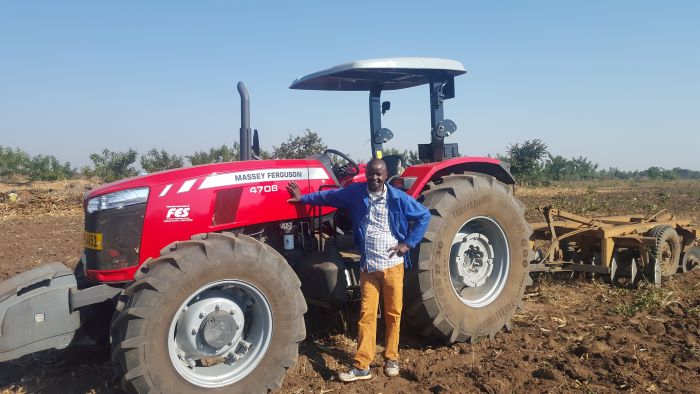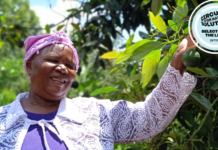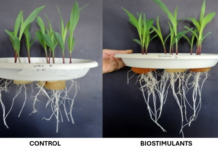
Farming and Engineering Services (FES) has well over 50 years’ experience in providing agricultural solutions. Their services are backed by world-class brands, expert technical services, advice and practical know-how to Malawi’s farming communities as well as other related industries.
As is in line with the times, FES prides itself in evolving and reinventing itself. It’s not just about equipment anymore; but integrated agricultural solutions, providing services which support their customers at every step on their mechanized journey. They are thus involved in activities not limited to roadway and ditch maintenance, land clearance, land preparation, irrigation schemes and contracting.
Farmers Review Africa had the opportunity to interview Mike Aldworth, the group Managing Director on the work FES is doing in Malawi as well as other important facets influencing agriculture across Africa today.
Progressive agricultural trends in Malawi
FES pioneered the use of contracting farming solutions for emerging farmers as well as some of the biggest farms in Malawi. Some of these functions include land preparation, crop spraying, material handling, bulk water infrastructure installation, full maintenance leasing and harvesting. This practice has come in handy and also proven to be cost-effective for the farmers, who instead of purchasing equipment which will only be used for a short period in the year, will instead contract FES which will provide the needed equipment and charge per hectare or hourly basis.

The internet of things has brought with it change in agriculture that has enabled precision in farming, and FES have managed to integrate the same into their services. For instance, farmers in Malawi are gradually adapting to the use of tractors fitted with GPS-guided auto-steer technology. Moreover, their drone technology is utilized for topographical surveys, plant health inspection and spraying for pre and post-emergent herbicides, pesticides and crop ripeners.
The innovation though, which undoubtedly takes the cake would be FES’s AgriLab, Malawi’s first independent soil- and leaf-testing facility which allows farmers to test and manage their soil, leaf health and water quality. The lab’s ability to focus on the agriculture sector while utilizing state-of-the-art equipment that delivers superior results compared to other facilities in the region sets it apart.
To put to rest the query on the affordability of their services, Aldworth explains that FES has taken the effort to adapt and change their products and services to suit the smallholder context. Both technically and financially, for example, the use of micro drip kits that are affordable and suited to smaller land areas.
He further adds that they ensure, where necessary, that appropriate models are in place to ensure that financial access is not a constraint, like partnering with microfinance institutions or off-takers that can provide services on credit. All these, he asserts, is done only after pilots are carried out to fully understand and cater for the context in which they are implemented.
Below are other insights Mr. Aldworth provided on some of the issues posed in the interview:
What are the top five lessons learnt about farming solutions in Southern Africa?
Aldworth: Better or more efficient use of available capital – spend your capital on improving your irrigation infrastructure as an example. This has a lasting sustainable effect on your enterprise
Embrace modern technology in your farming operation, using facilities such as the FES AGRILAB, GPS technology, drones, etc. AgriLab is a FES initiative, designed to help farmers increase their yields, improve their crop quality and build a sustainable food supply.

Maintenance of your equipment is the single biggest lesson to be learnt. Look after your equipment, service your equipment properly, using original equipment manufacturer (OEM) parts, no such thing as a short cut.
Do not overcapitalize on equipment. Sweat your assets – make them work harder for longer. They are designed to work but look after them
Look after your soils. They are the lifeblood of the agric business.
Which are the farming solutions available to commercial farmers in Southern Africa as an alternative to owning extensive equipment?
The option is to contract your operations out if it makes financial sense. Calculate the full cost of ownership before deciding to purchase, include your management time, your cost of capital and all operational costs and then look at your productivity for that unit. Ask yourself, is purchasing a $300 000 tractor to work 1000hours per year worth it on a cost per hectare basis compared to a contractor who might do 2000hrs per year?
In this era of COVID-19 and the uncertainties it has brought with it, this is what Mr. Aldworth had to say on what a post-COVID-19 reality would look like for emerging famers in Southern Africa and whether it will change for the emerging farmer.
The post COVID reality for smallholder farmers in Southern Africa is likely to contain a plethora of challenges, but in some ways, it may be the catalyst for change that has been needed for so long. For example, profit margins are likely to be squeezed. This is due to increased costs of doing business, like transport costs increased due to social distancing measures, and increased input prices due to import challenges.
Input markets may be less competitive if some businesses have struggled to survive during the COVID period. Some smallholders will simply weather this, others may slip back to subsistence farming, others will continue to commercialize but at a slower pace, but others may seek improved technologies to increase productivity and cost savings.
There is likely to be a decrease in support to smallholder farmers both during and immediately after COVID-19. Engagement of smallholders tends to rely on gatherings, field days, community meetings, etc. New skills and technologies need external input, i.e. visiting personnel to go into an area to showcase/sensitize. This activity will have decreased. In some cases, this will mean a slower adaption of improved farming practices and technologies, but it could also facilitate the use of innovative methods of engaging with farmers, for example, use of mobile technology, social media, etc.
Market demand and market prices are likely to suffer shocks. This will be very much crop and context-specific. It is likely, that with support, this could catalyze farmers into crop diversification. Crop diversification can help farmers cope with the impacts of COVID but also be a long-term strategy to attain economic stability and development. There will likely be a change in the number and volume of donor support to smallholder farmer development programs. If western economies suffer a recession, then funding to international development may decline but on the other hand, currently, resources are being mobilized into funds to mitigate the impact of COVID and these could be accessed by smallholder farmers.








